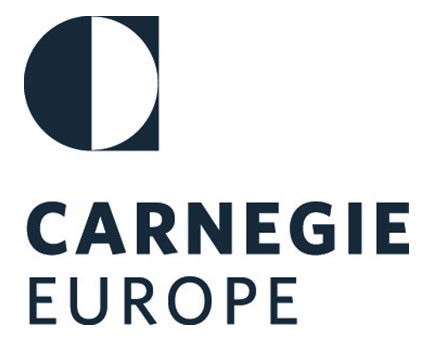
Contact information
Carnegie Europe
15 Rue du Congrès
1000 Brussels
Belgium
Tel: +32 2 735 56 50
Website: https://carnegieeurope.eu/
Mail: brussels@ceip.org
The team
| Name, Surname, contact | Resume | Speciality/Research Focus |
| Mark Hibbs Senior Associate mhibbs@ceip.org |
Mark Hibbs is a senior fellow in Carnegie’s Nuclear Policy Program, based in Berlin and Bonn, Germany. Before joining Carnegie in 2010 he was an editor and correspondent in the field of nuclear energy, nuclear trade, and nonproliferation. His work appeared in a number of publications, including the Financial Times organization, Nucleonics Week, and Nuclear Fuel, published by the Platts division of the McGraw-Hill Companies.
Hibbs’ research is focused broadly on international nuclear trade and nonproliferation governance in four main areas: the international nuclear trade regime, decisionmaking at the International Atomic Energy Agency, nuclear safeguards and verification, and bilateral nuclear cooperation arrangements. In 2011 in Brussels, and in 2015 in Vienna, Hibbs chaired two workshops for all participating governments of the Nuclear Suppliers Group, the world’s leading multilateral nuclear trade control mechanism. He also authored a Carnegie report, The Future of the Nuclear Suppliers Group, published in 2011. Hibbs also works on policy concerning the generation of nuclear power. In 2012 Hibbs co-authored with James Acton a report on Why Fukushima Was Preventable. Since 2012, Hibbs has led a project at Carnegie concerning the future of China’s nuclear energy program, its nuclear fuel cycle, and spent fuel management policies. In 2014 Hibbs authored a study on Turkey’s policies concerning the Nuclear Nonproliferation Treaty and the Nuclear Suppliers Group as part of a project called Turkey’s Nuclear Future. Since joining Carnegie Hibbs has also contributed in articles and commentary which have appeared in the New York Times, International Herald Tribune, Chosun Ilbo, Financial Times, Le Monde, Mainichi Shimbun, Frankfurter Allgemeine Zeitung, Washington Post, and other media. He has also been a frequent contributor to the Arms Control Wonk blog. |
Nuclear verification and safeguards, multilateral nuclear trade policy, international nuclear cooperation, and nonproliferation arrangements |
| Ulrich Kühn
Nonresident Scholar
|
Ulrich Kühn is a nonresident scholar at the Carnegie Endowment for International Peace, and a senior research associate at the Vienna Center for Disarmament and Non-Proliferation (VCDNP)/James Martin Center for Nonproliferation Studies, based in Vienna, Austria. Previously, he was a Stanton Nuclear Security Fellow with Carnegie’s Nuclear Policy Program, and a fellow with the Institute for Peace Research and Security Policy at the University of Hamburg (IFSH). He holds a PhD (summa cum laude) in political sciences from Hamburg University, an MA in Peace Research and Security Policy from Hamburg University, and a Magister Artium in medieval and newer history as well as German literature from the Rheinische Friedrich Wilhelms University Bonn. His current research focuses on NATO-Russian relations, transatlantic security, nuclear and conventional deterrence and arms control, and the proceedings of the OSCE.
Kühn worked for the German Federal Foreign Office and was awarded United Nations Fellow on Disarmament in 2011. He is the founder and a permanent member of the trilateral Deep Cuts Commission and an alumnus of the ZEIT Foundation Ebelin und Gerd Bucerius. His articles and commentary have appeared in Foreign Affairs, the New York Times, the Bulletin of the Atomic Scientists, the Washington Quarterly, and War on the Rocks. |
NATO-Russian relations, transatlantic security, nuclear and conventional deterrence and arms control |
| Sinan Ülgen Visiting Scholar sulgen@ceip.org |
Sinan Ülgen is a visiting scholar at Carnegie Europe in Brussels, where his research focuses on Turkish foreign policy, nuclear policy, cyberpolicy, and transatlantic relations.
He is a founding partner of Istanbul Economics, a Turkish consulting firm that specializes in public and regulatory affairs, and chairman of the Center for Economics and Foreign Policy Studies, an independent think tank in Istanbul. Ülgen has served in the Turkish Foreign Service in several capacities: in Ankara on the United Nations desk (1990–1992); in Brussels at the Turkish Permanent Delegation to the European Union (1992–1996); and at the Turkish embassy in Tripoli (1996). He is a regular contributor to Turkish dailies, and his opinion pieces have been published in the International New York Times, the Financial Times, the Wall Street Journal, and Le Figaro. He was a member of the international security experts group set up by former NATO secretary general Anders Fogh Rasmussen and tasked with preparing a report on the transatlantic relationship in advance of NATO’s September 2014 summit. Ülgen is the author of Governing Cyberspace: A Road Map for Transatlantic Leadership (Carnegie Europe, 2016), Handbook of EU Negotiations (Bilgi University Press, 2005), and The European Transformation of Modern Turkey with Kemal Derviş (Centre for European Policy Studies, 2004). |
Turkey’s regional stance, Turkey’s role in nuclear, energy, and climate issues
|
